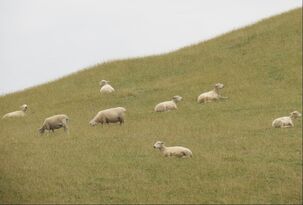 all have great worth to Him all have great worth to Him Whenever I read the parable in the Gospel of Luke about the 100 sheep with the one that wanders off, I usually think about its meaning by considering the Shepherd who went after the one and left the 99. This is often what is emphasized, insofar as Jesus exemplified how much each of us is valued, even the ‘wanderer.’ The message is powerful, filled with the truth of the unfathomable love God has for His children: all have great worth to Him. However, upon reflection my thoughts were drawn to that one wayward sheep; how would I feel if I was the one who had wandered off? Admittedly, I have been that one many times, and if we are honest, we know that everyone shares in this proclivity to wander, not necessarily away from the faith, but into a course of action that has unwittingly moved us away from God through some pattern of sin. And what is it like to be of the 99? Most of the time we are among the faithful flock; but what is important for us to consider is how we have responded to the Shepherd who has subsequently left us to go find the one, and how we have responded to the one who wandered off. We all are members of the one flock, and when all is well, we graze safely. But even in the midst of the flock, if danger is lurking we must be alert, holding fast to our trust in the Shepherd. We are always safe, but it is our responsibility to be vigilant and to stick as close to the Shepherd as we can to let Him guide us through the difficulty. 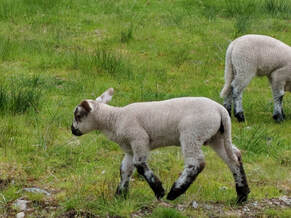 the lamb knows how to seek out its mother the lamb knows how to seek out its mother It is often said that sheep are stupid animals, but this is not necessarily true. Sheep are fiercely true to their shepherd. Stupid animals would not be able to identify their shepherd to distinguish him or her from the marauder or false shepherd. And if they were stupid they would not trust their shepherd with their lives, follow the instructions given them, or follow where the shepherd leads. Of course, they do need direction, and perhaps that characteristic is the source from which their reputation for being one of the lesser intelligent animals may arise. I have also heard that as with many animals, sheep protect their own; that is, a ewe will protect her lamb, and the lamb knows to seek out its mother if it gets a little disoriented. Therefore, if we are to understand the sheep symbolism that Jesus used in His parables, we must recognize that part of what He was saying is that as spiritually mature people we have a responsibility to remain alert and make choices based on that which the Shepherd has taught. He will lead us, but like the sheep in this story, we have the freedom to stay or to wander. He stays close, but He also provides the tools we need so that we can make mature, Spirit-filled decisions. Whether we sense His presence or not, the Shepherd is aware of our every movement, although sometimes for reasons unknown to us He seems to stay hidden so that, in freedom, we can use the gifts He has given to find our way back to Him. 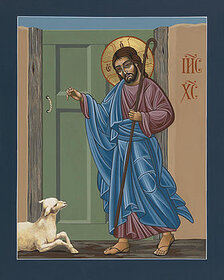 a Shepherd would do anything to protect the flock a Shepherd would do anything to protect the flock Jesus used the image of being a shepherd because the people of His day could relate to it. Shepherding was a viable way to ‘make a living,’ but it was an occupation for those who were usually poor. Therefore, choosing to describe Himself as a shepherd could be seen as an odd choice; shepherds were looked down upon as unsavory at best, and totally reviled at worst, because they could not go to the Temple to fulfill the requirements of the Law. They had difficulty keeping the Sabbath and were often considered unclean, given that they did not have time for the rituals required in the cleanliness laws due to the demands of maintaining flocks. Shepherds simply could not walk away from their sheep, expecting the flock to be safe in their absence; there were no days off for a shepherd. But for Jesus the reference to Himself as a shepherd was deliberate and fitting: He knew He would be reviled as one who ‘broke the Law,’ not applying it literally, but teaching and living its spirit through love and mercy. He also knew that just as a shepherd would do anything to protect the flock, He would do the same, eventually laying down His life for His sheep. 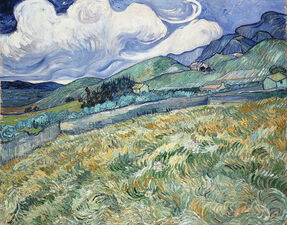 grazing safely grazing safely To understand this parable on a deeper level, it would be good to pray with it by composing Midrash. Midrash is the consideration of a story from the point of view of each of the ‘characters’ within it, delving into what their particular experience may have been like.* In this case, we can put ourselves into the shoes (hooves?) of one of the sheep among the 99 and then of the sheep that strayed. We can also imagine what the Shepherd may have been thinking. Praying with the passage in this way will open us up to more insights into what Jesus is trying to communicate to each of us (uniquely) in this present moment. Our earthly journey is perilous, filled with many rocky paths, enemies of the Shepherd who are therefore hostile to us, and precipices from which we can fall. Hopefully, as we pray, we will grow in trust for Jesus our Good Shepherd, ‘grazing’ safely by partaking in His Body and Blood for sustenance, knowing He is always present to offer protection, guidance, love, and mercy to the flock He loves. 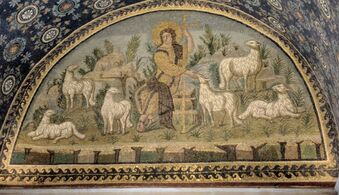 may we like sheep safely graze may we like sheep safely graze May we learn to trust in Jesus, our Good Shepherd more deeply! May we graze continually, feeding our souls on the Body and Blood of Jesus that we may grow in love and mercy! And may we, like sheep, safely graze in the Kingdom of Heaven one day! Let us meet in the pasture of the Lord! Peace! ©Michele L. Catanese Note: The musically inclined will have caught the reference to a beautiful, often performed piece of music by Johann Sebastian Bach called “Where Sheep May Safely Graze.” It was running through my head the entire time this entry was being written. It has been transcribed for just about every instrument you can imagine, but here is one version I particularly love, performed on classical guitar by Christopher Parkening: https://www.youtube.com/watch?v=mZuNr8r7yV0 *Midrash was mostly used by Jewish scholars as a commentary to explain a passage more deeply. It was a way of thinking that would break open a passage by considering it from different angles, so to speak. Here, I am adapting the concept as a way of praying with a passage, so that the one who prays can unpack the parable for deeper understanding of what Jesus was revealing through each of the ‘characters,’ given that we know that every word Jesus spoke had great meaning. (My suggested application is similar to, -or rather I have derived it from- the way St. Ignatius would have one pray using the imagination.) Images: 1. My photo, sheep grazing, taken in New Zealand. 2. My photo, lamb wandering, taken in Scotland. 3. Icon, El Buen Pastor by Fr. William Hart McNichols. You can find this at fineartamerica.com/featured/el-buen-pastor-188-william-hart-mcnichols.html 4. Painting, Landscape from Saint-Rémy, (1889) by Vincent van Gogh. 5. My photo of a mosaic of Jesus as the Good Shepherd. This is in the San Vitale Cathedral in Ravenna, Italy. Note: In compliance with GDPR rules, I wish to make it clear that I do not gather any information on any of my readers at any time. Comments are closed.
|
Heart Speaks to Heart
|

 RSS Feed
RSS Feed

